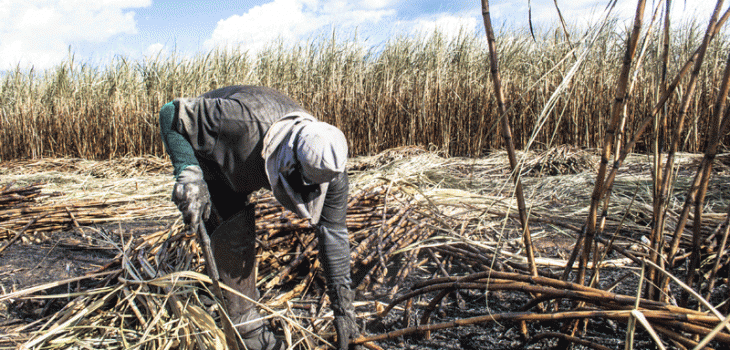Why are thousands of sugarcane workers in northwestern Nicaragua dying from chronic kidney disease?
London School of Hygiene & Tropical Medicine https://lshtm.ac.uk/themes/custom/lshtm/images/lshtm-logo-black.png Friday 22 April 2016
In the sugarcane fields of Nicaragua, young men work in the scorching heat for 8-12 hours a day cutting down lofty canes with a machete. It’s backbreaking work – in a typical shift they may lose more than 2kg in body weight. The men drink water or electrolyte drinks and take respite in the shade when they can, but this is often not possible. Such physically demanding work can be expected to have a toll. But increasingly worrying numbers of them are being struck down with chronic kidney disease of unknown cause, a long-term condition which will eventually take many of their lives.
Chronic kidney disease (CKD) has killed at least 20,000 young men in Central America in the last two decades. Most of these men were sugarcane workers along the Pacific coast. In Western countries, fewer than 1% of the male population have chronic kidney disease of unknown cause. By contrast, in the Chichigalpa municipality of Nicaragua where I am conducting research into the mysterious epidemic, 44.9% of people in rural areas and 53.9% in urban communities have some degree of chronic kidney damage.
In a country where sugar production accounts for 4% of total GDP and many families rely on husbands and fathers working in the sugarcane fields, this is an alarming trend. No one knows the exact cause of the high levels of CKD in cane workers. Some factors such as pesticides, dehydration, heat or stress have been suggested, but these also apply to other occupations where there isn’t a high prevalence of CKD.
After being diagnosed with CKD the men can no longer work in the sugarcane fields. There is some limited state benefit and healthcare available to those deemed eligible if they can prove that they have completed necessary continuous hours of work and have an official diagnosis of CKD. But at the most serious stage of the disease, sufferers require regular dialysis or haemodialysis to stay alive and, without a kidney transplant, will eventually succumb to the illness.
I have studied this epidemic in Nicaragua for the last ten years. I run an occupational clinic at the National Autonomous University of Nicaragua in Leon, studying Ministry of Health data on the disease and conducting diagnosis and evaluation of patients. In October 2014, I began a project with researchers at the London School of Hygiene & Tropical Medicine and UCL to investigate occupational kidney disease in Pacific coast Central America.
We have currently recruited 263 men and 87 women to our cohort and hope to uncover vital information, which will identify the main cause of CKD among this group of young, previously healthy men. I set off from home at 3 am to make the long journey to the villages of the workers and perform tests before they head to the sugarcane and agriculture fields.
My tests include measuring kidney function at regular intervals (every six months over a two-year period), taking blood and urine samples and taking environmental samples such as water and soil. The cycle of tests will finish at the end of this year. We will then work until early 2018 to analyse the data and publish our findings, which will be of importance both in Central America and further afield in other countries with similar climates and exposure to potential toxins.
In poor rural areas of northwestern Nicaragua, men are usually the main providers for the family. I am excited that we may soon shed light on what is behind the large increase in cases of this life-threatening condition, and that we may be able to help these men, and the families who depend upon them.
- The research is funded by the Colt Foundation, which awarded a grant of £210,204 to Professor Neil Pearce from the London School of Hygiene & Tropical Medicine and Dr Ben Caplin from UCL (University College London). Dr Dorothea Nitsch and Professor Liam Smeeth from the School are also involved in the study.
Video: Dr Marvin Gonzalez discusses chronic kidney disease and sugarcane workers in Chichigalpa, Nicaragua.
Our postgraduate taught courses provide health practitioners, clinicians, policy-makers, scientists and recent graduates with a world-class qualification in public and global health.
If you are coming to LSHTM to study a distance learning programme (PG Cert, PG Dip, MSc or individual modules) starting in 2024, you may be eligible for a 5% discount on your tuition fees.
These fee reduction schemes are available for a limited time only.